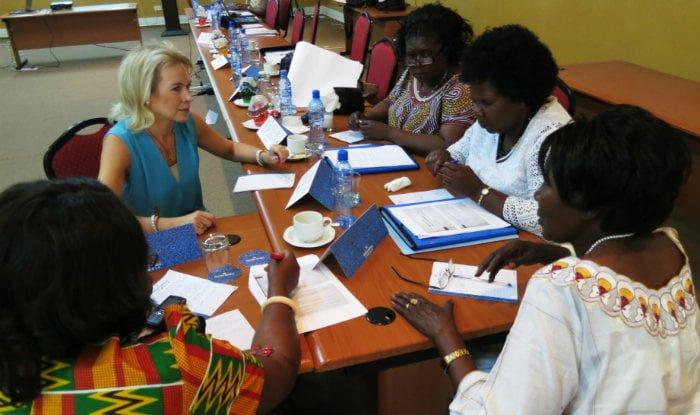Zambia will vote for a new president, new parliament members and new local councilors in August. Many are wishing that women would take a visible role in the elections and that their number in elected bodies would rise. At the moment, only around 10 % of parliamentarians and 6 % of local councilors are women.
When Zambian election campaigns are in full swing in late summer, Finland will celebrate 110 years of universal and equal suffrage. Thanks to the renewal of the electoral system in 1906, the number of voters increased tenfold and the Finnish women became the world’s first women to compete in parliamentary elections. As a result, 19 women gained seats in the parliament. However, women remained marginalized in politics for the next half a century.
In 1956 only 7.3 % of Finnish local councillors and 15 % of MPs were women. The number of elected women started to increase more rapidly in the late 1960s. Before that, an increase of 5 percentage points had taken 50 years. A one-third representation, that is often considered as a significant milestone, was reached in the parliament in 1983 and in the local councils only in 1992. Ever since, the increase has reached a plateau and in the latest elections, the share of women marginally decreased in the parliament and in the local councils.
Finland is often considered as a showpiece of women’s political participation, a notion that remains true from various points of view. At the same time, we tend to forget that the development of women’s political presence has been really slow – a fact confirmed by the figures above.
If we use Finland as a benchmark for Zambia, we would have to wait for a significant rise in the number of women politicians for a decade or two. The first post-independence election in Zambia took place in 1968. In those elections, not a single women got into the parliament. In 2006 women made up almost 15 % of MPs but the share decreased in the 2011 elections.
Zambian women politicians will not accept to stay at the sidelines anymore. Preparations for the coming elections have been going on for already a few years including systematic co-operation across party-lines. Demo Finland and its partner organization, Zambia National Women’s Lobby, have established Women in Politics forums in five districts of the country and are training candidates for the elections. All current local councilors play a key-role in the co-operation. They are encouraging local women to run in the elections and the councillors are also actively enhancing their own nation-wide co-operation. The most visible form of this co-operation are annual training days in Lusaka, a gathering of every women councilor in the country.
On the other hand, many obstacles remain. Campaigning is costly and men are usually in charge of families’ finances, quite often politics are not seen suitable for women and the electoral system in which only one candidate is chosen in every electoral district, makes it difficult for newcomers to get elected.
In politics, local level is often considered as a stepping stone towards national politics. However, in both Finland and Zambia, the representation of women is stronger in the national parliaments than in the local councils. Thus, it seems that prominent role-models play a pivotal role in enhancing women’s political participation.
These successful women have another major task in trying to ensure that politics and laws are made more gender equal. In the case of Finland, it is evident that the number of women in politics started increasing simultaneously with general reforms towards a more gender equal society. Paid parental leave, free health care and every child’s right to day care are among reforms that have made it easier for women to take their place in politics, but they are also reforms that women in particular fought for.
Various studies confirm that women and men tend to have different priorities in politics. For instance, women pay more attention to social affairs and are more eager to defend local services. In Zambia, stronger participation of women in politics is not only important as such, but it would help the poor country in offering better services to its citizens and boost economic growth as well as equality in the society at large.

